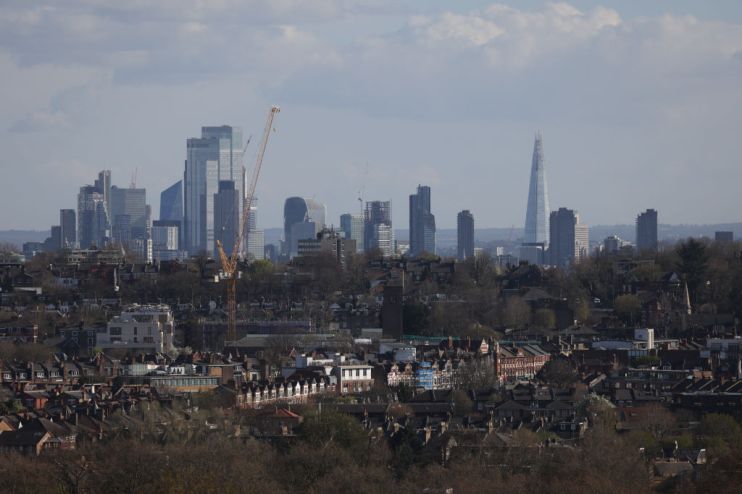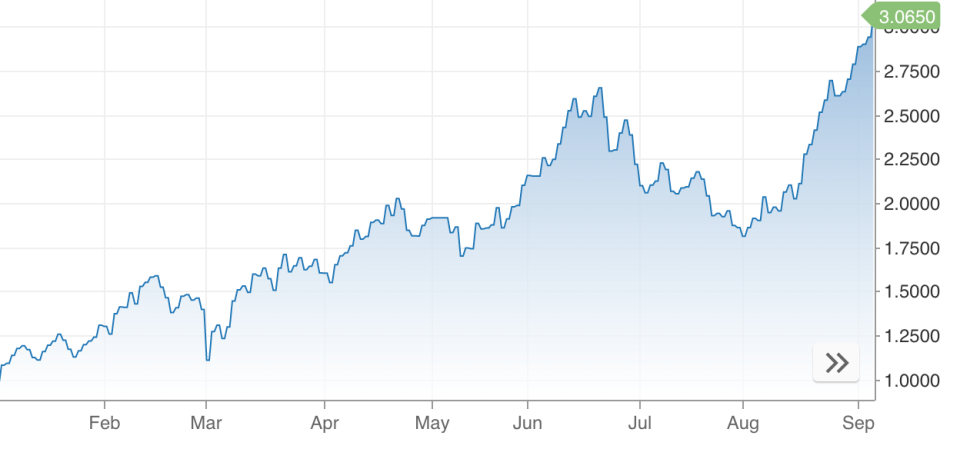Yields on UK government debt scale to over 10-year high

Yields on UK government debt hit their steepest level in over a decade today driven by investors fretting over the health of the country’s economy.
The return on the benchmark 10-year gilt kissed 3.125 per cent, passing July 2011’s record.
Five-gilt yields also climbed to the highest since August 2009, scaling to 3.061 per cent, while 30-year yields reached an eight year record.
The pound, which last week slumped to its lowest level against the US dollar since the mid 1980s, kicked around 0.3 per cent higher against the greenback.
Yield on 10-year UK gilt

Gilts are financial instruments the UK government issues to borrow money from investors to pay for goods and services that it cannot cover with tax revenue.
Bond prices and yields move inversely due to the return – the coupon – investors receive staying the same and being a proportion of the principal value of the debt instrument.
Yields have soared in recent months due to investors demanding a higher return in exchange for exposing themselves to the UK economy’s weakness.
Experts think the country is on course for a 15-month long recession beginning at the end of this year unless the government provides extra funding to support households and businesses through the cost of living crisis.
New prime minister Liz Truss is set to announce this Thursday a plan to freeze the energy price cap at around £2,500, funded through extra borrowing, general taxation or a combination of the two.
Higher gilt yields will raise the cost of Truss’s plan by making it more expensive for the government to borrow money. The UK’s debt interest bill is already set to top £100bn over the next two years, according to the Institute for Fiscal Studies.
However, the government today raised over £3bn through government debt.
Inflation has surged to a 40-year of 10.1 per cent, but forecasters have said it could top 20 per cent unless the government intervenes in the energy market.
Investors tend to demand higher yields to offset price rises.
Wages are failing to keep pace with price rises, meaning households are likely to absorb the worst hit to their spending power this year since records began.